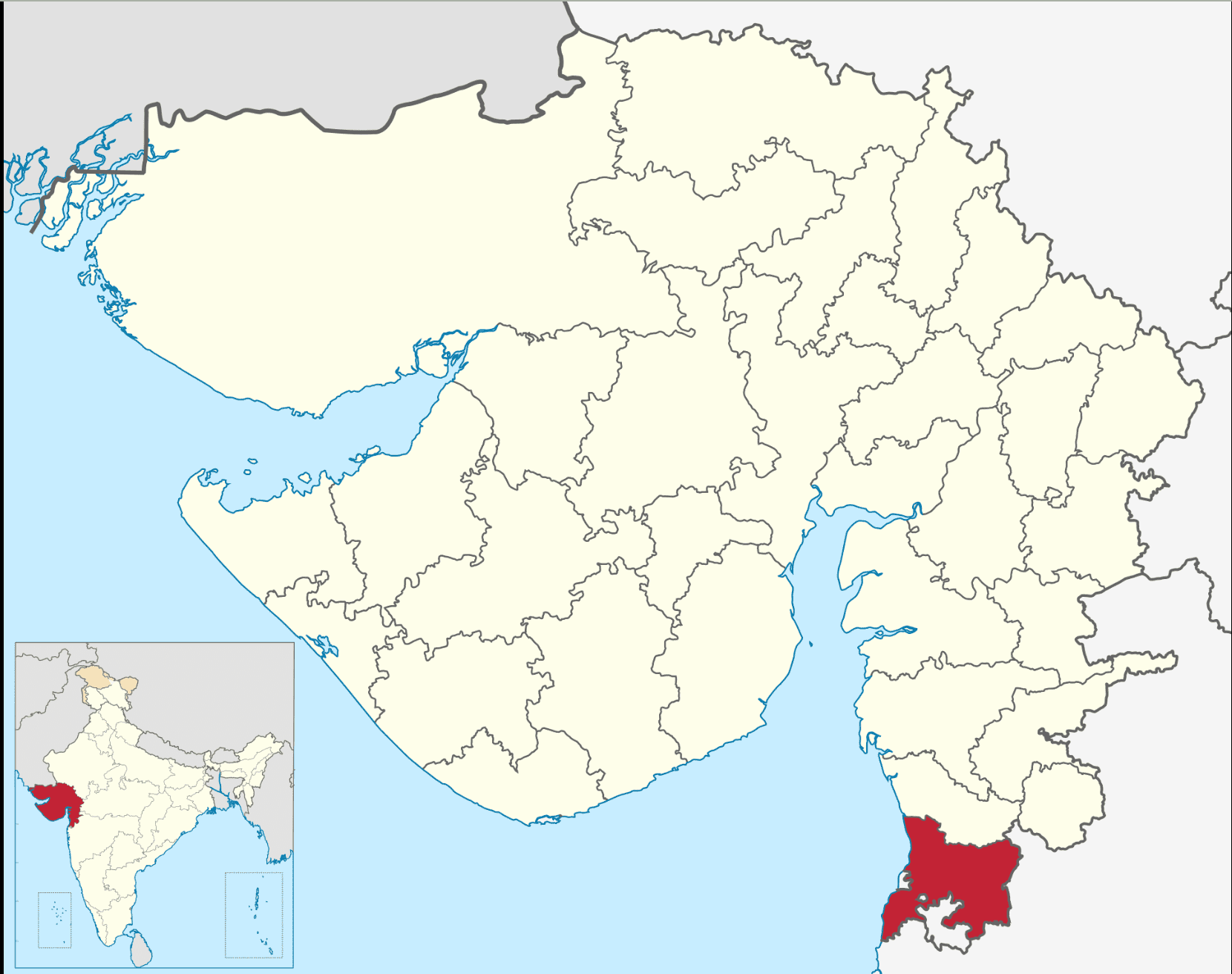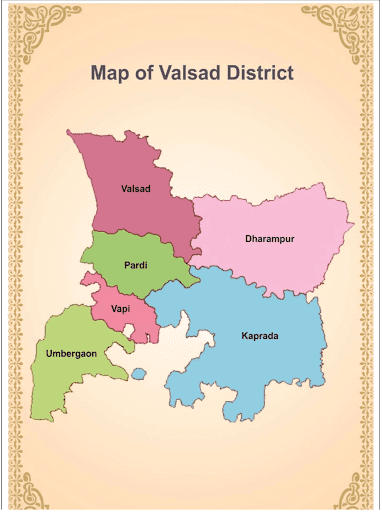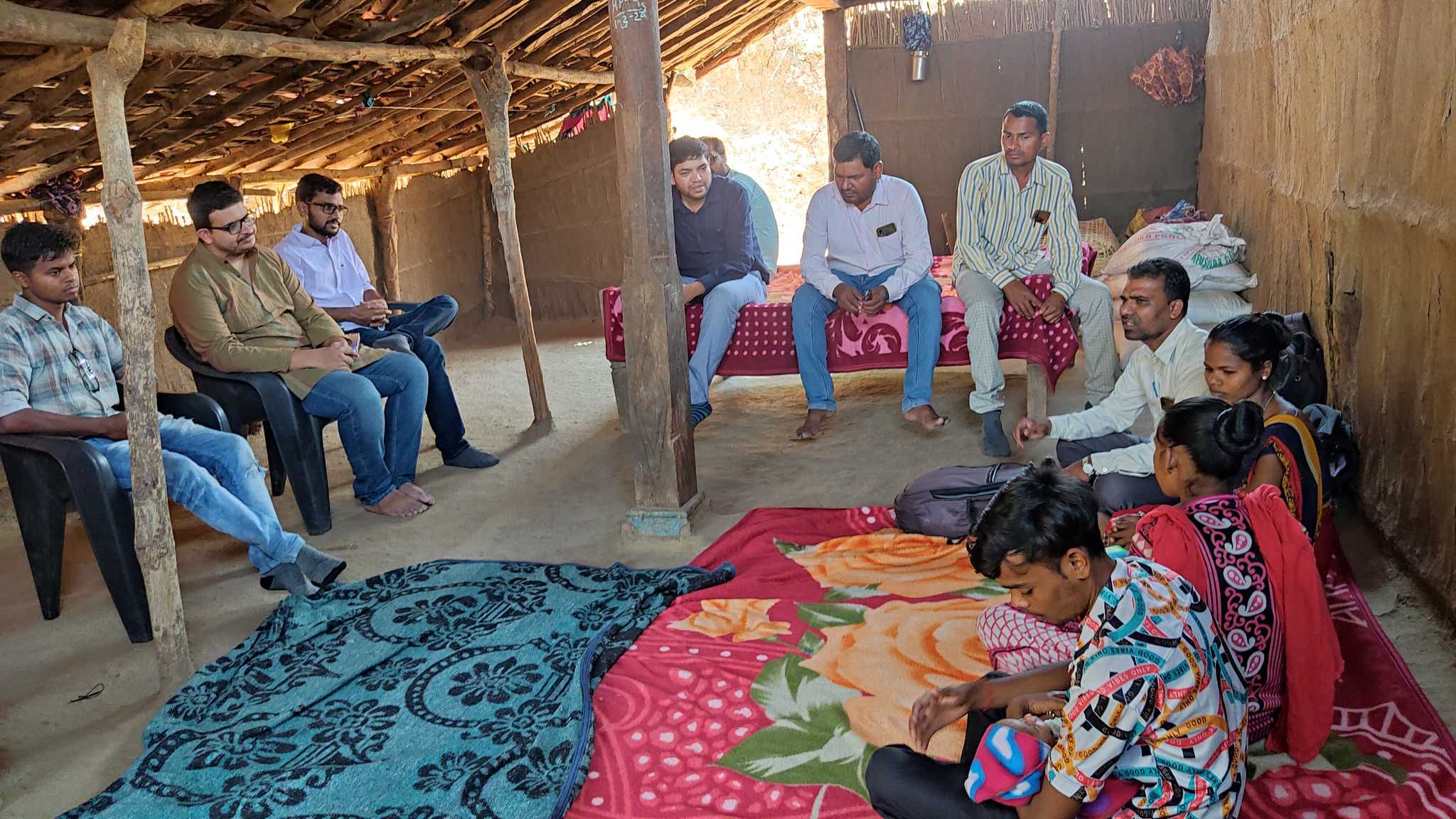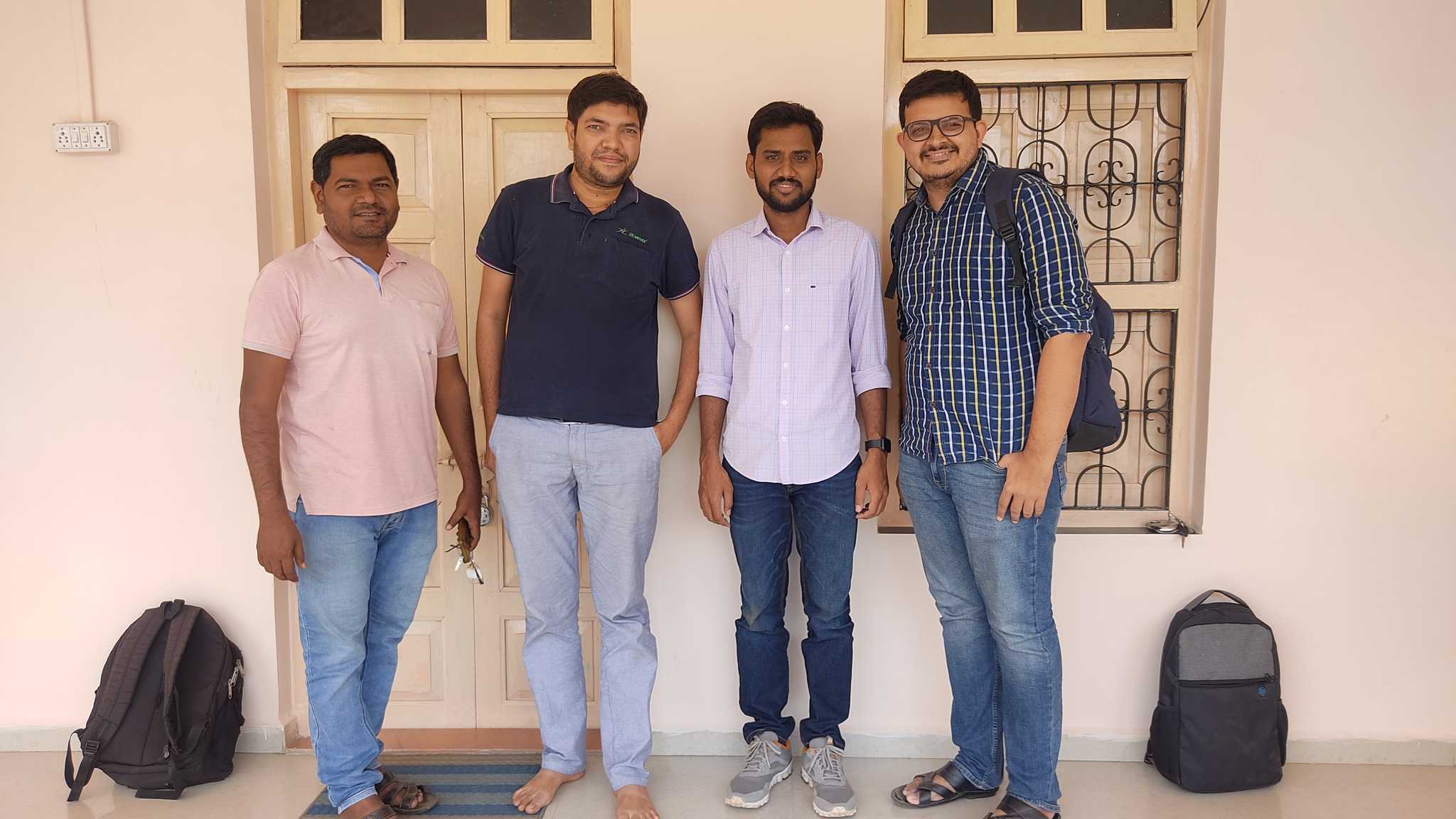Field visit report - JNPCT
May 03, 2022 by Sachin Kadam
In April Utkarsh Hathi and I did a 2 day visit to Jashoda Narottam Public Charity Trust (JNPCT) a non profit organisation working in the tribal belts of south Gujarat. JNPCT works in villages bordering Maharashtra in the blocks of Dharampur and Kaprada of Valsad district. The organisation has been using Avni for their interventions on community health. The purpose of our visit was to see first hand how the users are using the application and take feedback from them.

Valsad. By Milenioscuro - Own work, CC BY-SA 4.0, https://commons.wikimedia.org/w/index.php?curid=99701429

Valsad. Source : mygov.in
Majority of the population in both the blocks suffer from poverty. In addition to that, these villages are relatively remote to access due to their geographic location. This has resulted in poor access to quality healthcare and prevalent customs and norms practised within the community make it harder to follow necessary practices for well-being. JNPCT have been concentrating their efforts on community awareness, clinical guidance and access to nearby hospitals through their interventions in community health.
Dr. Sachin who is the technical lead for the program gave us insights on socio- geographical uniqueness of the region. The blocks of Dharampur and Kaprada region is hilly terrain where villages are more in the form of hamlets and households are distributed over some distance. Due to it being a hilly terrain and villages located at some distance from each other, there are some villages which get separated and become inaccessible during the monsoon.
On the evening we reached Dharampur, Dr Sachin took us for an excursion in the city. He also shared his personal journey which is really inspiring. Originally from Maharashtra, he took a challenge to work in a tribal area scarce of doctors. His dedication for service is so high that he learnt Gujarati within a month.
Next morning, we started our day with breakfast at JNPCT office. Dr Sachin along with Mahendrabhai explained the organisation’s background and work. Initial support was provided by SEWA Rural to understand the need of the area and the severity of the issues faced. The awareness about the quite low rate of institutionalised deliveries and alarming rate of infant and neonatal mortality convinced them to work on maternal and child health.
The focus of community health intervention at the moment is on early identification and provision of services to eligible couples, pregnant women and children upto 5 years of age. Once these beneficiaries are identified, regular follow ups are done by Arogya sahelis and supervisors, front line health workers of JNPCT. Awareness and counselling is done to adapt correct practices for the well-being of the mother and child during this entire process. Since these villages do not have access to some of the grains and produce available in plain terrain areas and urban areas, the people from the organisation also help the women in households in identifying available materials at their homes and in villages and items they can make at home to feed the child.
After having a brief discussion about ongoing issues in application with cluster incharge we then left for the villages where some visits were scheduled with beneficiaries.

River we crossed to reach the village
The first village we visited was Penda, a village that often gets separated from rest of the region during monsoons. It becomes quite difficult to access. Health workers inform the woman before the expected date of delivery to shift to a nearby village with better access. In cases when even that is not possible, the organisation has already provided training to midwives through the help of staff from ARCH (Action Research in Community Health), another organisation which has been working in the region on community health. This ensures avoidance of any critical situations. Here we interacted with sahelis and supervisors, also observed how they interact with beneficiaries and fill up the data in avni.

Discussion in village
We had our lunch on the way to the second village Khadki which included delicious Rotis made of ragi and rice and a tasty pickle made of bamboo!

Lunch on the way to second village
During the visit, we learnt a very interesting practice of baby care called Kangaroo Mother care. This method is especially helpful for premature deliveries and low birth weight babies. In this method the mother is required to keep the child close to her in a way which ensures skin to skin contact. This is required to be done four to five times during a day for an hour or two. It reduces the chances of mortality, and severe illness and also increases the weight of children. What was even more fascinating for us was that in the tribal households even other members within the family do participate in the practice at times and reduce the burden on the mother.
As we observed the Aarogya sahelis and Supervisors interacting with beneficiaries and recording details in the digital application, Dr Sachin shared a surprising fact with us. 95 of the sahelis had never used a smartphone before. In spite of this learning to use the app has not been very difficult for them.This is mainly due to the simplicity of the app and their motivation to pick up something new.
Before returning to Dharampur we also visited to a beautiful place called Wilson hill which is named after the Governor of Mumbai from 1923 to 1928 by Vijay Devji, the last king of Dharampur.

Mahendrabhai, Dr Sachin, Myself and Utkarsh from left to right
The next morning we spent some time with Dr Sachin and Mahendrabhai understanding their concerns and feedback for the system.
There are many socio-political and technical challenges in the Health for all mission they are pursuing. It was nice to hear from them how Avni is helping them in this. Avni has helped in beneficiary monitoring, risk assessment, screening, follow up and facilitating further reference. They are looking forward to using Avni for the adolescent programme which they are planning to start soon.
This exposure to ground-level work and challenges enriched me professionally as well as personally. It gave me a sense of satisfaction that amidst the materialistic and selfish pursuits, I am able to utilise my technical knowledge for the betterment of my people far away 😇